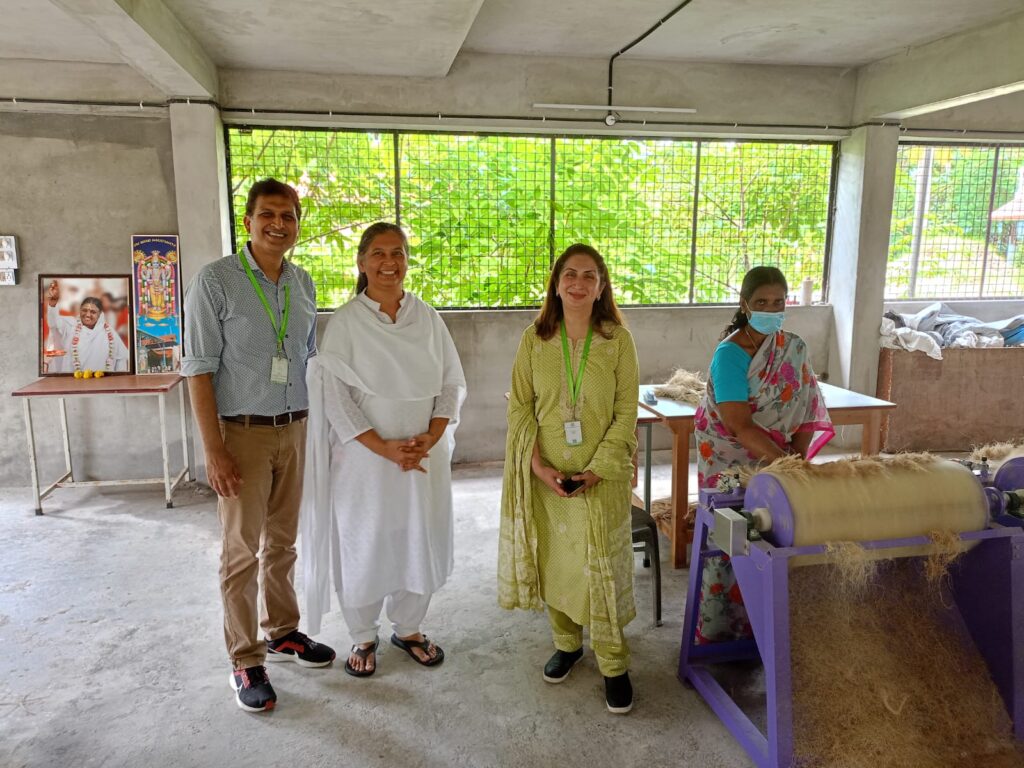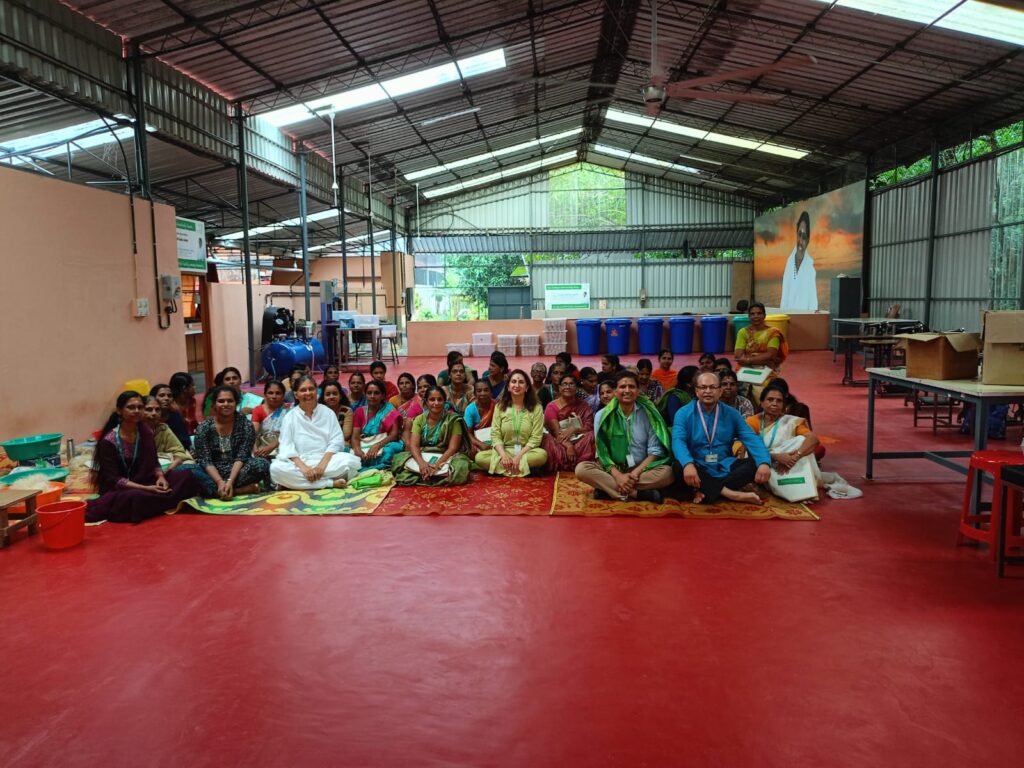From Features to Futures: My First Year Transitioning from Tech to Social Impact
May 14, 2025
“It’s okay to do first and think later.”
About a year ago, during a product review meeting, I had a strange sense of déjà vu. The words coming from my then-CEO echoed those of a previous one. The concerns voiced by the design and engineering team felt like well-worn scripts—predictable, practiced, and rhetorical. Instead of leaning in to align and solve, I found myself emotionally stepping out.
I wasn’t bored—I was restless. I was no longer progressing, just circling.
That meeting marked a quiet but decisive turning point. A few weeks later, I began my experiment in the social impact space—not with a blueprint or grand plan, but with the hope that it would feel more meaningful and the curiosity to see whether I could be useful.
I knew that dipping a toe wouldn’t be enough. So I jumped in fully.
I started by volunteering with three to four different organizations, working in areas that spoke to me. These were groups I discovered through research, introductions, and word-of-mouth. I offered what I had—my time, skills, and experience. My work ranged from contributing to high-level strategic conversations to hands-on tasks—writing policy documents, building teams, pushing for results, and plugging operational gaps. If a spreadsheet needed building, I built it. If a board presentation needed editing, I edited it. I let the needs of the organization dictate my role. When asked, I said yes. This kind of immersion brought raw, honest learning.
It allowed me to shape my path through lived experience—not by theorizing or by replication.
Here are a few reflections that have stayed with me from this first year.
1. The Cause Matters
One of my most fulfilling engagements has been with Saukhyam Reusable Pads—led by CEO, Anju Bisht, and her team—an organization addressing both environmental waste and menstrual hygiene while creating livelihood opportunities for rural women in India. I was moved by the overall mission—but what excited me most was that it helped address India’s low (and until recently declining) female labor force participation rate (FLFPR).
- – India’s FLFPR was approximately 31.2% in 2023, compared to over 70% in countries like Kenya and Mozambique.
- – In developed nations like Sweden, the rate is closer to 80%; and 58% in the U.S.
But beyond the numbers, it was the sense of dignity that the work and the product brought to the women involved that stayed with me. For once, the KPIs weren’t just metrics on a dashboard—they were lives transformed.
2. Give Where You Live
In the beginning, all the organizations I worked with were based in India. I could more easily identify and understand areas of need there. While it was satisfying to give back to my roots, I began yearning to also find purpose closer to where I live now.
That’s when Boys Who Write and its founder, Shaila Kapoor, came onto my radar. The organization is focused on reversing the deteriorating outcomes for boys—academically and emotionally—by building empathy, relationship skills, and communication among preteen boys in the U.S.
The need is real:
- – In 2021, women earned 61% of associate degrees, 57% of bachelor’s degrees, and 59% of master’s degrees—reversing the gender gap in education.
- – By age 18, 54% of boys report feeling lonely.
Digging deeper into this issue made me realize that challenges like this are often like icebergs—there’s so much beneath the surface that remains unseen until you truly engage. The emotional, educational, and social trajectory of boys is a growing crisis—and this program offers a simple but powerful way to help rewrite it.
Shaila’s hands-on experience in education and technology, the team’s passion, and the innovative solutions being piloted in the U.S. this summer make the impact real and tangible.
3. Finding Your Tribe
In tech, we often talk about networks in terms of leverage. But in the social impact world, I think of networks in terms of support, resonance, and shared values. Finding your tribe is everything when you’re entering a new space—especially when you’re trying to discover allies for your inner mission, a shift from networking to kinship.
A turning point for me was when I recently joined Indiaspora, a community of Indian-origin leaders across sectors who are committed to meaningful change. Their forums, events, and conversations have given me both inspiration and validation—that I’m not alone in navigating this path, and that support exists for people like me who are just starting out.
4. Be Prepared to Catch the Entrepreneurial Bug
While supporting established organizations has been deeply rewarding, what’s lit a different kind of spark in me is the chance to build something from scratch.
Over the past couple of months, I’ve been developing a program for diaspora youth with Aarti Mahadevan and iVolunteer in India—a hands-on experience that brings teenagers to India to learn skills like dancing, filmmaking, or entrepreneurship, and apply them by working with mission-driven nonprofits there.
The idea is still taking shape—but the early interest has been incredibly energizing. There’s something transformative about helping the next generation connect privilege with purpose—and I’ve found myself pulled into the creative chaos of starting something new.
And through all of this, I’ve changed too.
It’s made me see how deeply some of these problems run—and that systemic change won’t come from the sidelines. I feel compelled to engage more intentionally, more boldly. It’s also helped me reframe what success looks like—not as output or velocity, but as lives touched, the trust built, and the change sustained.
Looking Back, Looking Forward
Was this shift easy? Not always. There were (and still are) moments of doubt, feelings of not doing enough, and the deep discomfort that comes from being a beginner again. But I’ve also felt energized, useful, and deeply satisfied.
In tech, I had gotten used to building and shipping features. In impact, I’ve started to understand what it means to help shape futures. Along the way, I’ve picked up a few lessons:
- – Clarity comes through doing. You don’t need a perfect plan to start.
- – Mission fit matters more than role fit. The right cause can stretch you into doing things you didn’t think you could.
- – Surround yourself with believers. A tribe that shares your values can carry you through the chaos.
- – Variety can be a force multiplier. Each new challenge adds to your judgment, creativity, and confidence.
- – Don’t underestimate the power of local impact. Sometimes the most urgent problems are the ones right outside your door.
If you’re thinking about taking the leap into social impact, don’t wait for the perfect plan—just start. Volunteer. Talk to people. Get your hands dirty. Let curiosity lead you.
Because sometimes, the only way to learn to swim… is to jump in.
🌊 If you’re already on this path—or considering it—Feel free to comment here, message me on LinkedIn, or connect via email. Let’s keep swimming together.


About the Author

Mamta Bhandari is a former tech executive who now advises nonprofits and social ventures. She partners with mission-driven organizations tackling systemic challenges in India and the U.S., bringing product thinking and a deep sense of purpose to the work that matters most.


